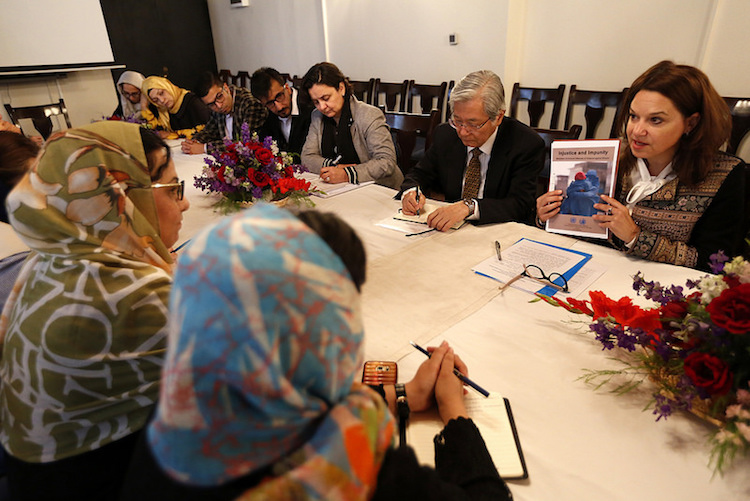By Devinder Kumar
NEW DELHI | KABUL (IDN) – Though a law on the elimination of violence against women has been in place in Afghanistan since 2009, Afghan women’s access to justice remains severely inadequate, says a new report released by the UN Assistance Mission in Afghanistan (UNAMA).
Entitled Injustice and Impunity: Mediation of Criminal Offences of Violence against Women, the report documents the individual experiences of Afghan women, survivors of violence across the country, between August 2015 and December 2017, and identifies the human rights implications of the widespread use of mediation in cases of violence against women.
The report released on May 30, 2018 describes how mediation deprives women of access to justice and hinders the realization of their fundamental rights.
“The use of mediation in criminal cases serves not only to normalise violence against women but also to undermine confidence in the criminal justice system as a whole,” said Tadamichi Yamamoto, the UN Secretary-General’s Special Representative for Afghanistan.
“The report’s findings, including details indicating unchecked impunity in honour killings and the murder of women, signal that justice for Afghan women victims of violence remains severely inadequate.”
In the criminal cases of violence against women outlined in the report, UNAMA found that the majority were mediated by traditional dispute resolution mechanisms, with Elimination of Violence against Women (EVAW) Law institutions referring the cases, participating in the proceedings or observing the proceedings. Afghanistan’s EVAW Law and penal code do not include any legal provision allowing for the mediation of criminal cases.
“Many of the women interviewed for this report said that they were pressured into withdrawing their official complaints and agreeing to mediation, as if no actual crime had occurred,” said Danielle Bell, head of UNAMA Human Rights. “The mediation of incidents of brutal violence against women essentially transforms criminal acts into mere family disputes; such mediation directly contradicts the spirit and letter of the EVAW Law.”
The report details Afghanistan’s obligations under domestic and international law to ensure the effective prevention and protection of women from such crimes, and makes several recommendations, including that the Government of Afghanistan ensure the full implementation of the EVAW Law and the 2018 Penal Code provisions regarding the elimination of violence against women.
The report notes that the existing legal framework and court adjudication processes in Afghanistan provide options for women facing violence, and emphasises that mediation cannot replace the judicial protections provided to women by the constitution and laws of Afghanistan. It states that mediation should not be used to resolve criminal offences of violence against women, including murder and honour killings, and the crimes set out in Articles 18-22 of the EVAW Law.
“The government has taken concrete steps to establish measures for accountability, and our report recognizes this, but the reality is that brutal violence against women continues to take place,” said Tadamichi Yamamoto, who is also head of UNAMA.
“It is our expectation that the insights presented in this new report will trigger the reforms needed to protect Afghan women and to improve their access to justice,” he added. [IDN-InDepthNews – 16 June 2018]
Photo: Tadamichi Yamamoto, the UN Secretary-General’s Special Representative for Afghanistan, to be seen in the middle. Danielle Bell, head of UNAMA Human Rights, presenting the report.
IDN is flagship agency of the International Press Syndicate.
facebook.com/IDN.GoingDeeper – twitter.com/InDepthNews

